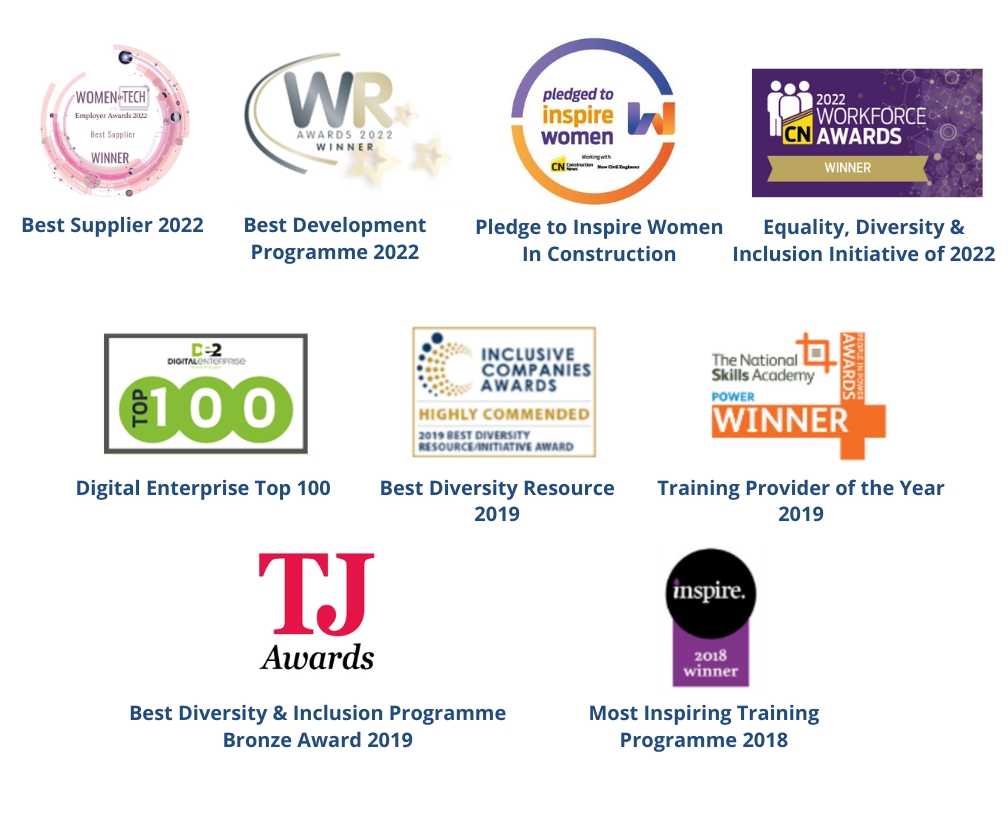
Being recognised as a great company to work for is just one of the many positive outcomes training by gender diversity specialist Skills 4 delivered for Peter Brett Associates LLP (PBA).
Claudia Desai, PBA’s Director of People and Change, said the training had played a major part in improvements in the results of the staff engagement survey which had helped it gain entry into The Times Top 100 Best Companies to Work For.
As a leading development and infrastructure consultancy, PBA has 20 sites in the UK and Central Europe. It has a workforce of around 700 with skills across a broad range of disciplines, from engineering and planning, to regeneration and economics.
“Our industry as a whole remains male- dominated and there are not enough female role models,” said Claudia. “We needed change to cultivate, bring out the best and retain talented women in PBA.
“It became apparent that our female employees were not as engaged as they could or should be. We looked at the male/female split across the Practice and although it is nearly 50/50 at graduate level, the higher up the organisation, the fewer females there seemed to be.” While 33% of PBA’s workforce is female (higher than many of its peers), women are still underrepresented in senior management roles.
Whenever there is training like the Skills 4 Career Development Programme introduced, there is always some scepticism and that was the case, even among some of the women who were nominated,” said Claudia.
“However, they have all become advocates and speak very highly of their experience on the programme and what it has done for them. We are asking them to nominate the next generation to go on the programme because they can speak about their experiences and show it is not just ‘training’; it is about career development and being able to have confidence as a woman operating in a male dominated industry, and the impact of that will help us to recruit and retain good women. They can tell the nominees of their firsthand experiences.”
Claudia has seen a noticeable increase in confidence and greater input into the organisation through simply understanding the differences in the way men and women communicate.
“One employee fed back to me how she was able to hold an assertive (not aggressive), difficult conversation with a male colleague without becoming emotional and crying. “It is all about the awareness of the differences between how we communicate,” she said.
Those on the programme were asked to present to the Managing Partner, Chairman and Director of People and Change, on any perceived barriers women faced within PBA. This has prompted PBA to review some of its policies, practices, and planning of internal and external events to facilitate greater diversity. The company is now looking at holding more diverse client networking events and it has reviewed its family friendly policies in support of career progression for everyone. There is a stronger community of women across the business to support each other.
Claudia said: “It doesn’t really matter whether you are male or female – the Skills 4 training is excellent and you can pick up tips to help progress your own career, help others to do so and create a stronger working environment, all of which is great for business. Our customer base is diverse; it is important that we are too. I will be really interested in seeing the retention and progression of women within PBA over the coming years.”
As well as the Career Development Programme, the senior leadership team undertook Skills 4’s Unconscious Bias training which shows how being aware of personal biases allows leaders to make better and fairer decisions, enhances problemsolving and increases ability to think differently, ultimately leading to better client relationships and better business.
Paul Reilly, Managing Partner at PBA, said: “We want to build a diverse organisation that helps everyone to fulfil their potential. The Career Development Programme and Unconscious Bias training are enabling us to help empower our female employees at all levels to have a voice in shaping the culture and future of PBA for the long term, making us an even better place to work.”
